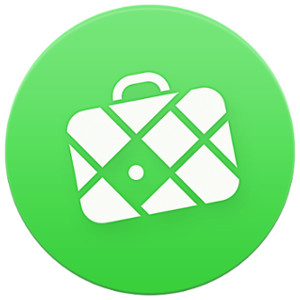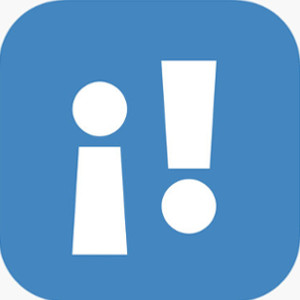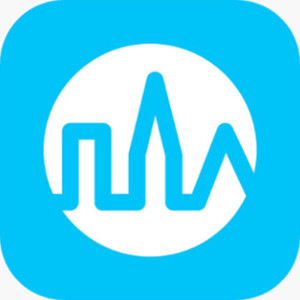5 Best Apps for Travel to Cuba
Published by CamDarling on
Cuba is a special country for travelers because it’s not well connected to the digital age. Sure they have TV, radios and laptops… but so did people in 1995. Cuba is cut off from things like streaming, app development, video games, most eBooks & podcasts. It’s like going back to a landline phone after using a smartphone in a lot of ways. The idea of going back to traveling with just the basics like a paper map and a compass sounds nice, but rain is a thing… So I’ll take my phone please.
The thing is you can’t get a SIM Card in Cuba, the only thing you can use to get on the internet are Wi-Fi hotspots where you need to connect with a pre-paid Wi-Fi Card. Check out our article on Cuban Wi-Fi. So take 10 minutes to download all the apps you’ll need before you leave. Having a few great apps can make traveling in Cuba way easier.
1. Maps.me Offline Map App
Maps.me is almost essential for traveling in Cuba. This open source offline map has pin points added by other travelers to mark important places like banks, ATMs, shops, Wi-Fi locations, hotels and restaurants. I recommend maps.me all the time because it works offline. But do check out our other map app recommendations.
Maps.me is by far the best offline map app and one I use each time I travel. You can download a map package for all of Cuba!
- Price: Free
- Alternatives: Google Maps – Download Cuba, Offline Maps Cuba
2. SpanishDict Translator
The second most important app to have in Cuba is a Spanish Dictionary or Translator that works offline. The local Cubans do not speak English. Only the younger owners of the Casas and tour guides seem to speak any English. When the locals do speak Spanish, it is very quick!
There are a lot of great translators apps but few that have downloadable dictionaries that work with full phrases. I tried a few and preferred Spanish Dict. because of the easily accessible phrase list. But I recommend picking up a Lonely Planet Spanish Phrasebook as your primary dictionary.
- Price: Free
- Alternative: Google Translate, Microsoft Translate
3. Airbnb
Cuba has thousands of family owned Casas that rent out rooms by the night like Airbnb. Casas range from $10 USD per night to $25 USD per night.
Although internet access is difficult to get in Cuba, the local Cubans can respond to Airbnb messages and bookings using SMS on their phones.
There are a lot of listings, far more than booking.com or Hostelworld. So feel confident that you can book a casa for cheap through Airbnb.
- Price: In-App Bookings
- Alternatives: Booking.com, Hostelworld.
4. Triposo Travel Guide
An offline travel guide is by no means a substitute for a good old fashion book. I recommend bringing a paperback like Lonely Planet Cuba.
Triposo is a great travel guide app. You can download the guide to Cuba that includes information on sights, places to eat & drink, hotels & hostels, weather, currency and transportation. I like it because it provides some background on the different locations, the history and reviews from other travelers.
- Price: Free
5. Duolingo
Spanish is a great language to learn for international travel. It’s considered the second most spoken native language in the world with 400 million+ speakers.
So learning a little bit of Spanish is great for any future trips to South, & Central America, Spain and even parts of the United States. Duolingo is one of my favorite language learning apps, I used Memrise a lot for Japanese too. However I found the lessons on Duolingo easier to load without internet.
- Price: Free
- Alternative: Memrise
Cuba is a really cool country. The whole island is filled with cowboys, ranches, beautiful beaches, friendly locals, rum & cigars! What’s not to like! It’s not the most modern destination technologically, but offers travelers this authentic rustic experience.
The 5 apps here will help make your next trip to Cuba easier, but bring a few paperbacks along too! We put together a list of awesome books, movies and podcasts for Cuba to help with your research before you go!








